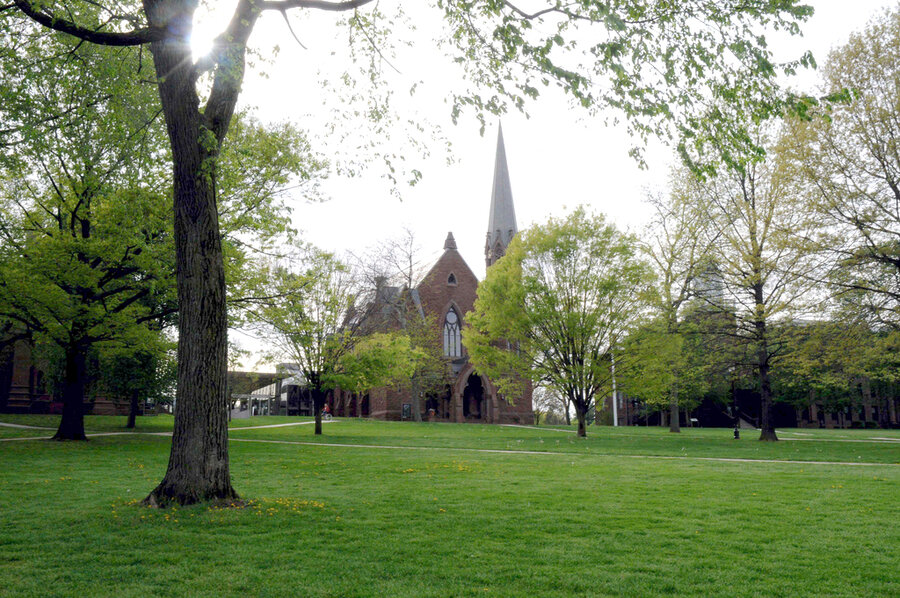A shift from family ties in college admissions
Loading...
In last month’s U.S. Supreme Court ruling against race-conscious college admissions, justices on both sides also took a swipe at preferences given to the relatives of school alumni. These legacy admissions, wrote Justice Neil Gorsuch, “undoubtedly benefit white and wealthy applicants the most.” Meanwhile, Justice Sonia Sotomayor said they help “disfavor underrepresented racial minorities.” Soon after, President Joe Biden asked the Education Department to investigate “practices like legacy admissions ... that expand privilege instead of opportunity.”
Then on Wednesday, just weeks after the ruling, two prominent schools – Wesleyan University in Connecticut and the University of Minnesota’s Twin Cities campus – announced they would end preferences based on bloodlines. Their actions hint at similar moves to come among schools – mainly elite private ones in the East – that still rely on the gene pool as much as the talent pool to select entrants.
An applicant’s connections to alumni “indicates little about that applicant’s ability to succeed at the University,” said Wesleyan President Michael Roth in a statement. If other schools take similar steps, he told The Boston Globe, “we have a better chance of restoring some of the trust and confidence [in higher education] we’ve lost from the public here in the United States.”
At the University of Minnesota, the director of student government and legislative affairs, Carter Yost, told Minnesota Public Radio, “It’s a democratic society, and we try and avoid nepotism to the extent that we can.” Legacy admissions, he added, were an “unfair leg-up, that had nothing to do with merit, or someone’s experiences.”
In recent years, a few dozen schools have taken this step, long before the court ruling, such as Johns Hopkins University and Amherst College. Some states ban the practice in government-supported universities. “You win a privilege lottery from birth,” Massachusetts state Sen. Lydia Edwards, a sponsor for a bill that would outlaw legacy admissions in that state, told the Globe. “That is insulting for those of us who are first-generation students trying to get into college.”
In any organization, nepotistic privilege and other family-related favoritism are often a way to pass down power by lineage. Such practices, even by appearance, demote merit and integrity as qualifications. “Power is never a good, unless he be good that has it,” said King Alfred the Great. And he might have added, one’s future in higher education should not depend on one’s genetic heritage but on one’s unique ability to excel in learning.







